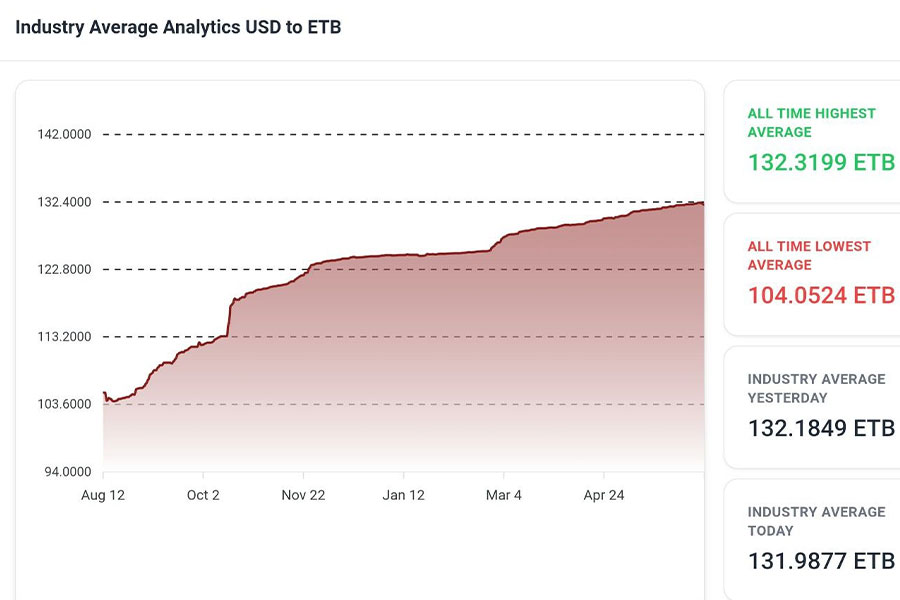
Jun 12 , 2024

Regulators at the National Bank of Ethiopia (NBE) have rolled out a series of new directives targeting the banking industry, including the preemptive introduction of an "unlikely to pay" category to identify loans at risk of turning into non-performing loans (NPLs). They have also capped the total exposure to a single borrower at 25pc of a bank's total capital, with a further limitation of 15pc for exposure to related parties.
A directive issued today mandates that all NPLs must be placed under non-accrual status, regardless of the collateral provided. If a borrower has multiple loans and any one loan becomes non-performing, all loans to that client must be classified as non-performing if they constitute 20pc or more of the bank's total exposure to that client.
"By enforcing stricter controls, the NBE aims to prevent the extraction of private benefits at the expense of banks’ stability and integrity," said a statement from the regulators. "The exposure to related party directive is designed to curb abuses and conflicts of interest arising from transactions with related parties."
According to the statement, these directives are part of a broader effort by the NBE to enhance asset classification and provisioning, set requirements for individuals with significant influence in banks, and promote robust corporate governance. The central bank's statement claims that these measures reflect a commitment to safeguarding the financial system and promoting prudent banking operations.
The NBE has imposed stringent criteria for the qualifications and experience of board members and senior management, including mandates for the inclusion of independent directors and the promotion of gender diversity on boards. By enforcing these measures, regulators aim to ensure that banks are managed by competent and accountable individuals who can oversee their operations and strategic direction.
These reforms appear to confirm practices endorsed by the Basel Committee on Banking Supervision and the International Financial Reporting Standards (IFRS), showing the importance of risk management, transparency, and accountability in banking operations.

Fortune News | Jun 29,2025

Fortune News | Mar 26,2022

Money Market Watch | Jun 15,2025

Fortune News | Mar 12,2022


My Opinion | 131454 Views | Aug 14,2021

My Opinion | 127806 Views | Aug 21,2021

My Opinion | 125787 Views | Sep 10,2021

My Opinion | 123422 Views | Aug 07,2021

Jun 28 , 2025
Meseret Damtie, the assertive auditor general, has never been shy about naming names...

Jun 21 , 2025
A well-worn adage says, “Budget is not destiny, but it is direction.” Examining t...

Jun 14 , 2025
Yet again, the Horn of Africa is bracing for trouble. A region already frayed by wars...

Jun 7 , 2025
Few promises shine brighter in Addis Abeba than the pledge of a roof for every family...